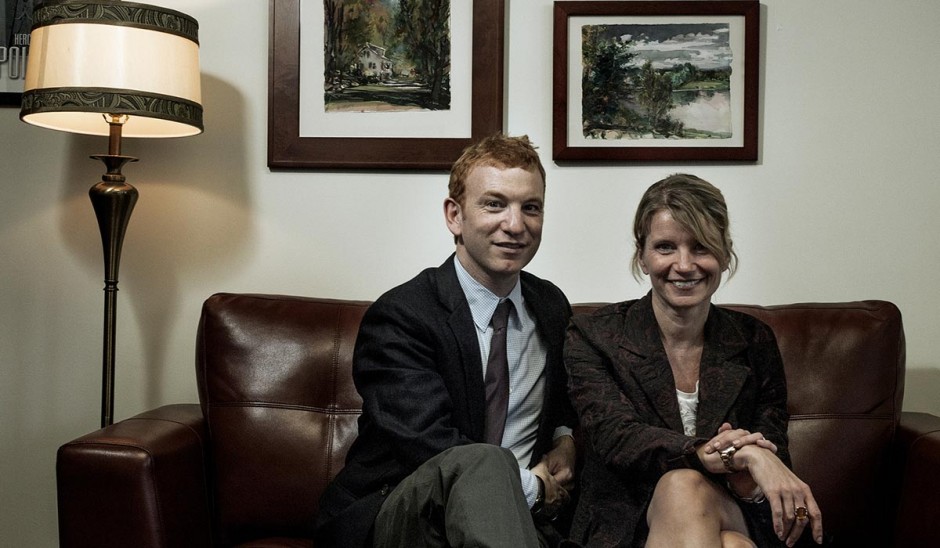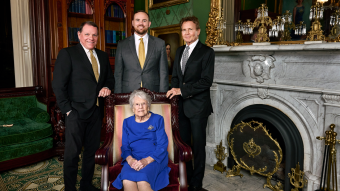If you are the sort of person whose Sunday-morning rituals involve the New York Times Arts & Leisure section or NPR’s Weekend Edition, consider spending Sunday afternoons absorbed in a live-action version of such pursuits, brought to the Columbia community by the MU Honors College.
Speaking of Culture, the humanities’ counterpart to Mizzou’s popular Saturday Morning Science program, lures audiences with discussions of Julia Roberts, baseball and Verdi. It shepherds attendees through explorations of civic monuments, religious celebrations and cavepeople couplings. There’s a colorful backdrop in local artists’ original paintings and photographs hung at Orr Street Studios, the series’ setting. There are cookies, baked by Helga West, mother of Honors College director and program cofounder Nancy West.
“This is a full-service operation, made with love,” says program cofounder Gabriel Fried, an assistant teaching professor of English.
Public scholars
The lecture series features lively and often pop-culture-infused 45-minute talks by Mizzou professors in fields such as art, anthropology and English. Students enrolled in West and Fried’s Speaking of Culture honors tutorial take care of details, including outreach, marketing, publicity, audiovisual support, chair setup and tending to speakers’ needs (and possible green-room rider demands).
West and Fried, also presenters in the series, see the program as a natural extension of the Honors College’s mission.
“One of the key goals of the Honors College now is to train our students to do public scholarship,” West says, “to translate what they’re doing in a classroom or a lab to a public audience.”
Aided by the students, the speakers are role models. However cerebral their academic pursuits might be, their community talks offer general-audience engagement and entertainment. And fun.
“Anyone who has a curiosity will really feel at home,” Fried promises. “These aren’t meant to be esoteric talks. They’re meant to share some subject that’s of great interest to the speaker. When someone is doing that well, it’s contagious.”
Oh, the humanities!
In recent years, pontification in higher-education circles has included dire predictions regarding the state of the humanities. Humanities funding has plummeted. Research grants are sparse. Many universities tout technology, business and hard sciences at the expense of liberal-arts staples. Recent reports show the percentage of university students majoring in the humanities has dropped by as much as half since the 1950s and '60s. Articles in the Chronicle of Higher Education herald “the humanities declining,” “a crisis in the humanities” and “the humanities in dubious battle.”
Pshaw, say West and Fried.
While conceding that inadequate research funding and support could constitute a crisis for some scholars, West says interest in the humanities is thriving, regardless of students' majors. Fried points out that the sheer quantity of discussion about the demise of the humanities suggests the opposite of demise. The humanities, they say, can teach us what it means to be human.
Whatever the humanities' fate, community engagement through undertakings such as Speaking of Culture can contribute in some small way to vibrancy in arts and culture.
"Beauty is something all of us want in our lives," West says, "and that’s not celebrated enough.”




